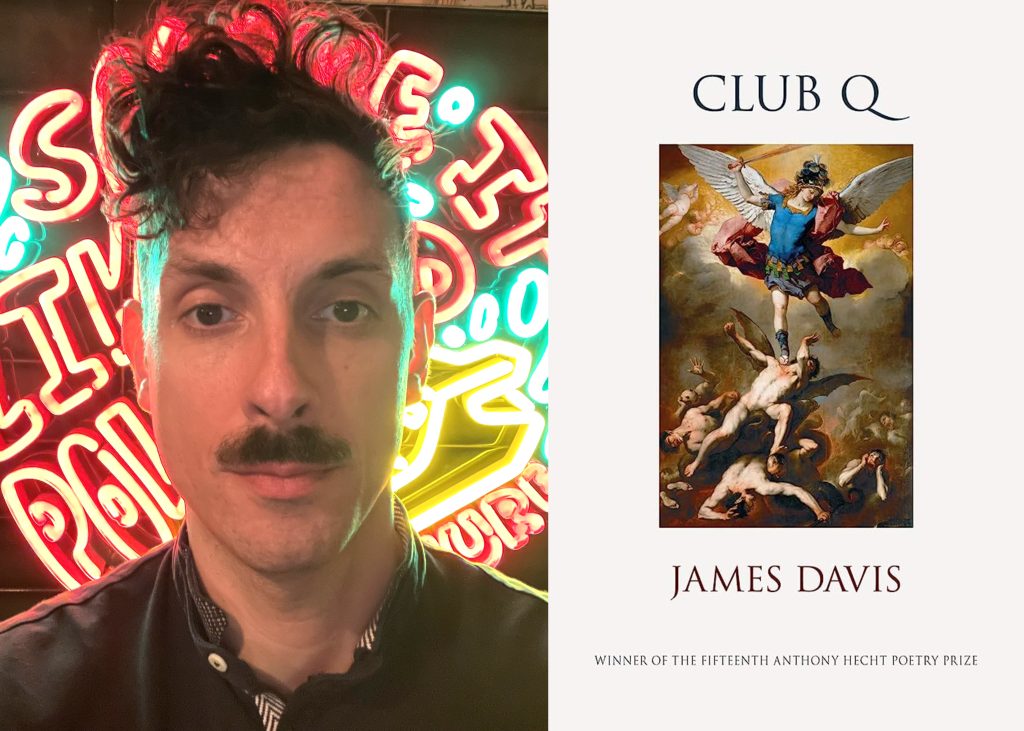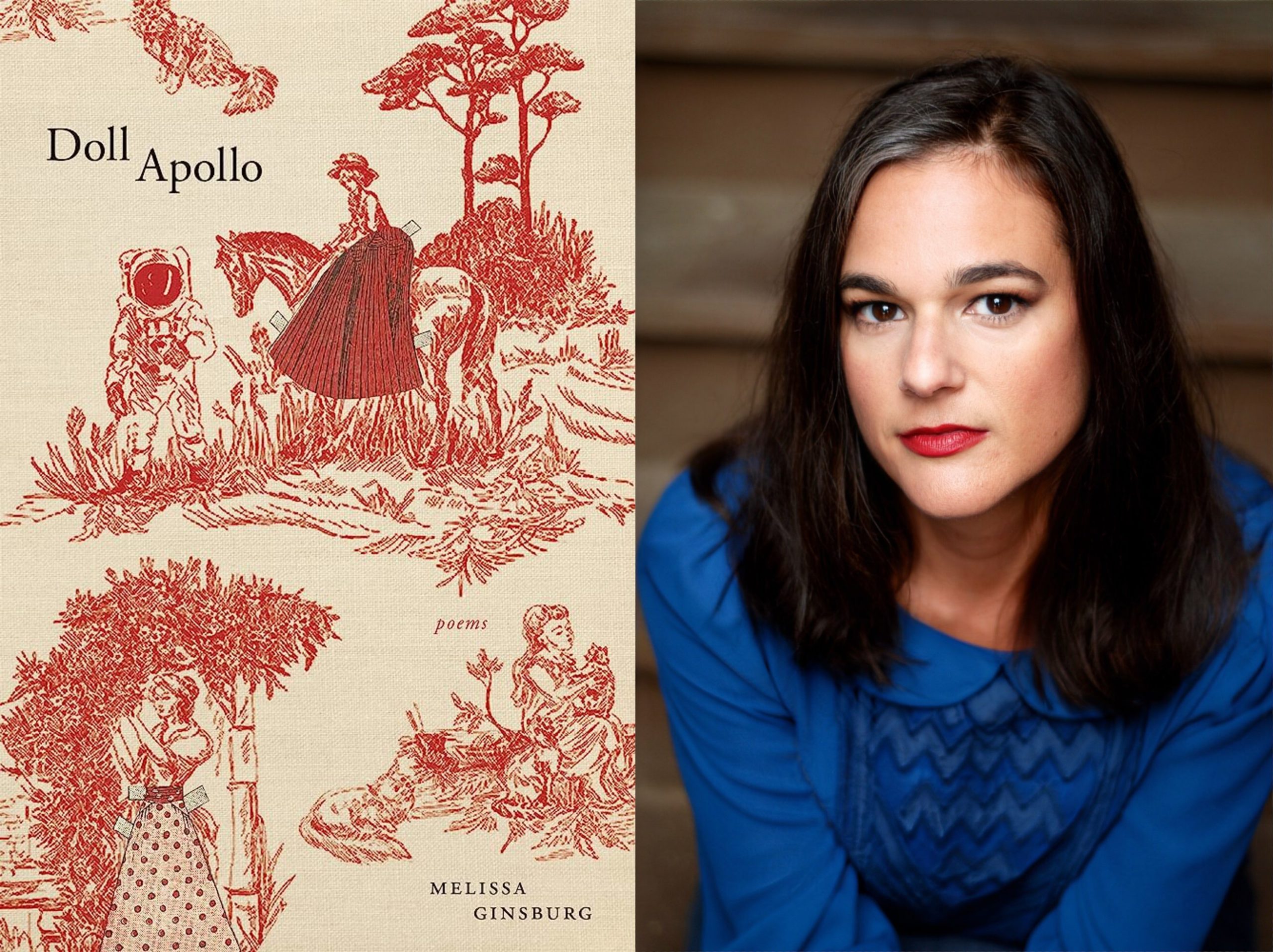James Davis’s Club Q is clever, often laugh-out-loud funny, and always meticulous: both within the poems formal considerations and the book’s arrangement as a whole. Davis is a master of linguistic foraging, arranging his sonic and syntactical finds for the reader to devour. Within his poems, comedy, intelligence, and despair are often synonymous, and wordplay is always on the menu.
In the first section, “Quest,” the early poem “This Poem is so Middle-Class, It’s Pathetic,” whisks the reader into Davis’s childhood with lines so smart they sting:
My mother has a word for what she’s been doing since the Sixties:
piddling (verb, intransitive). We lick the rims of our margaritas, mine
salted, hers sugared.
Fruity Pebbles, Hungry Man, everything I ate had a name
more memorable than mine.
Here, as in other poems, Davis holds both the objects and words of his life to the light, examining them with both humor and sadness. Blossoming from the poems recounting Davis’s childhood, are poems celebrating queerness, which is an inextricable part of the collection’s identity. The remarkable titular poem, “Club Q,” named after the Colorado night club that was recently made famous by the tragic hate-related shooting, is an achingly memorable song of affirmation. Opening with the powerful and painful declaration:
I stand for quest, which is to say mission,
as in “our mission is to provide
a safe space to be yourself,”
which is to say “it is not always safe
for you to be yourself.”
“Club Q” continues in its announcement, often doubling back on itself syntactically, clarifying itself, and further redefining its definitions. Rather than bloating the poem with these continued definitions, claims, and clarifications, the poem becomes the very act of redefinition and reclamation: the message being that we are allowed to shape and reshape ourselves as we see fit. That the very act of being is, in itself, a fluid act.
The collection does not end with Davis’s moving and often wry observations and within the first section, but moves on, in later sections, to dissect language with a surgeon’s scalpel. Davis is a competitive Scrabble player, and the second section, “Queries,” takes sound and language to task with the same wit and humor the reader has grown to expect. In the poem “Is,” Davis opens with the laugh-out-loud observation, “How fondly I remember the last impeachment, / how much care was taken for the children,” referring to the impeachment of Bill Clinton, when children all over the US were often first exposed to the word “fellatio” through the nightly news.
Davis continues to turn his gaze on American culture and politics in the final section, aptly named “Quotidian,” with poems that take aim at the establishment of bigotry and stupidity that reigns in the 21st century. Still, these poems are steeped in Davis’s humor and intelligence, leaving the reader unsure whether to laugh, cry, or both.
Overall, Club Q is a startling, memorable debut, and readers will find the collection to be well worth the read. We should all expect big, beautiful things from James Davis.
Link to podcast episode: https://spotifyanchor-web.app.link/e/czcW0sJgLAb
Link to book: https://waywiser-press.com/product/club-q/






